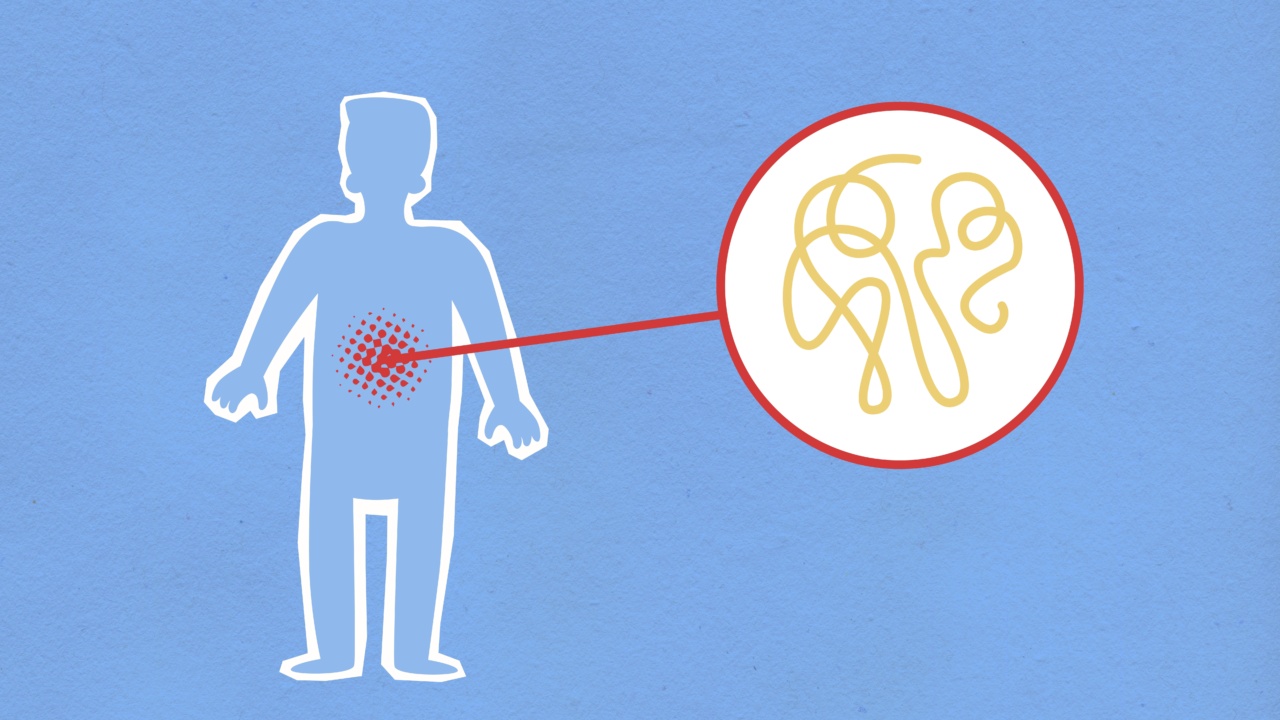Stomach worms are parasitic worms that live in the stomach and intestine of their hosts. They can cause a range of symptoms depending on the type of worm, the severity of the infection, and the individual’s immune system.
While some people may have no signs of infection, others may experience a range of digestive, respiratory, or systemic symptoms. Here are some of the common signs of a stomach worm infection:.
1. Abdominal Pain and Cramping
One of the most common and noticeable symptoms of a stomach worm infection is abdominal pain and cramping. The worms can cause irritation and inflammation in the stomach lining, leading to pain, bloating, and discomfort.
The pain can be mild to severe and may come and go or be constant. It may be accompanied by other digestive symptoms such as nausea, vomiting, diarrhea, or constipation.
2. Weight Loss and Malnutrition
Another sign of a stomach worm infection is weight loss and malnutrition. The worms can interfere with the absorption of nutrients from food, leading to deficiencies in essential vitamins and minerals.
This can cause fatigue, weakness, and poor concentration and can increase the risk of infections and other health problems. In severe cases, it can lead to stunted growth, developmental delays, and cognitive impairment.
3. Anemia and Fatigue
Stomach worms can also cause anemia, a condition in which there is a deficiency of red blood cells or hemoglobin in the blood. This can lead to fatigue, weakness, shortness of breath, pale skin or mucus membranes, and chest pain.
Anemia can also increase the risk of infections and may require medical treatment in severe cases.
4. Cough and Respiratory Problems
Some stomach worms, such as roundworms and whipworms, can migrate to the lungs and cause cough and respiratory problems. This can occur when the larvae of the worms are coughed up from the stomach and are swallowed or enter the airways.
The worms can cause irritation and inflammation in the lungs, leading to coughing, wheezing, chest pain, and fever.
5. Skin Irritation and Rash
In some cases, a stomach worm infection can cause skin irritation and a rash. This can occur when the worms release toxins or allergens into the bloodstream, leading to an allergic reaction.
The rash may be itchy, red, or raised and may occur on different parts of the body.
6. Fever and Chills
In some cases, a stomach worm infection can cause fever and chills. This can occur when the immune system responds to the presence of the worms and releases chemicals that cause inflammation and fever.
The fever may be mild to high and may be accompanied by sweating, chills, and other symptoms of infection.
7. Anal Itching and Irritation
Some stomach worms, such as pinworms and hookworms, can migrate to the anus and cause itching and irritation. This can occur when the female worms lay eggs in the perianal area, leading to irritation and discomfort.
This symptom is more common in children and can interfere with sleep and daily activities.
8. Digestive Problems and Bad Breath
Stomach worms can also cause a range of digestive problems, including bad breath, indigestion, and acid reflux. The worms can disrupt the balance of the digestive system, leading to the overgrowth of harmful bacteria and other microorganisms.
This can cause bad breath, bloating, reflux, and other symptoms of digestive distress.
9. Nervous System Dysfunction
In rare cases, a stomach worm infection can lead to nervous system dysfunction. This can occur when the worms migrate to the brain or spinal cord and cause inflammation and damage.
The symptoms may include headache, seizures, confusion, or paralysis and may require emergency medical treatment.
10. Eye Infections and Vision Problems
Some stomach worms, such as river blindness, can cause eye infections and vision problems. This can occur when the larvae of the worms enter the eyes and cause inflammation and damage.
The symptoms may include itching, redness, or swelling of the eyes, as well as vision loss, particularly in the peripheral vision.
Overall, a stomach worm infection can cause a range of symptoms depending on the type of worm, the severity of the infection, and the individual’s immune system.
While some symptoms may be mild and self-limiting, others can be severe and require medical attention. If you suspect you have a stomach worm infection, see a doctor for diagnosis and treatment.



























